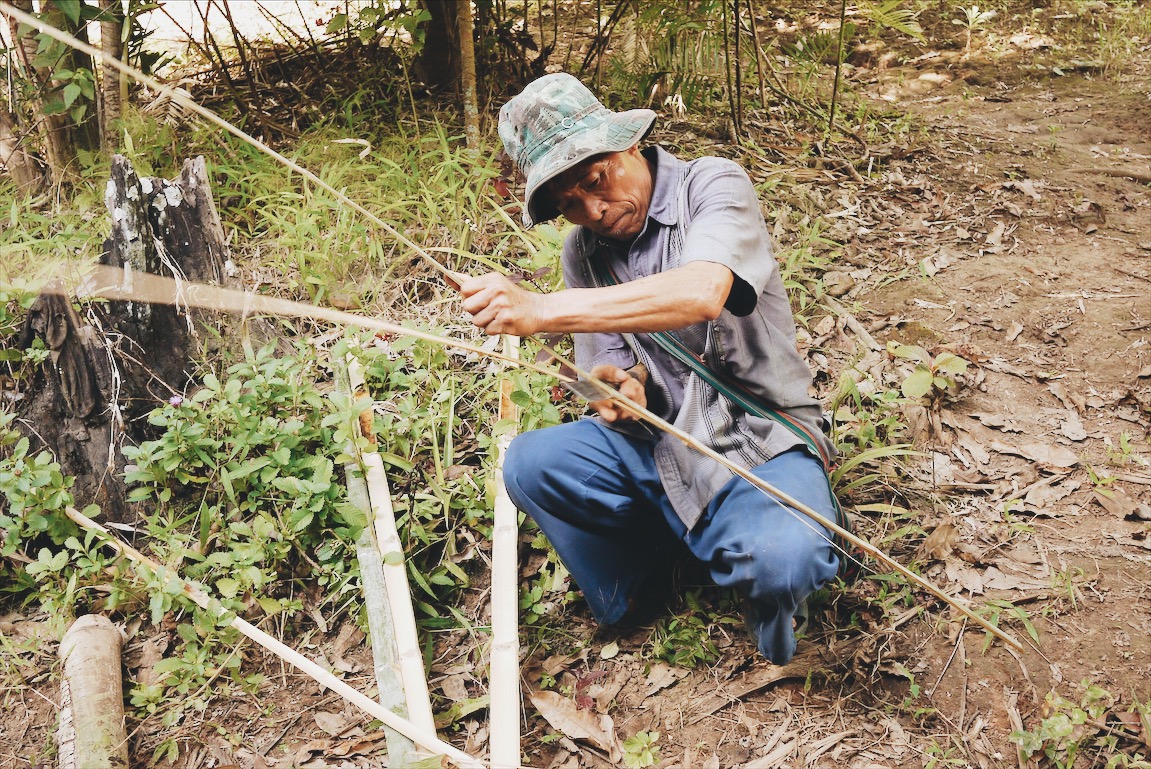Restoration happens through everyday decisions
At a glance, environmental restoration looks like a very large undertaking—and that's true, in part. Threats to the health of the planet have reached an urgent, global scale. But the magnitude of the challenge should not distract us from this simple reality:
Environmental change takes place through everyday decisions.
Simple decisions can include choosing to use a chemical pesticide rather than a more natural product, to drive rather than to walk, or to chop down trees rather than to keep them in the soil. These are choices people face daily all around the world. In the moment, their impact on the environment feels small. But these little choices add up.
This isn’t limited to choices that harm the environment. Efforts to restore the environment also take place through daily decisions.
While strategies and policies to restore the environment should include big-picture thinking, we must also factor in the significance of everyday concerns.

Education plays a key role in Plant With Purpose's environmental restoration work.
To affect everyday decision-making, address everyday concerns
Everyday concerns can be as simple as they sound. Where will your next meal come from? How will you cover the cost of school fees? How can you be more productive at work? These simple concerns inform our actions, which in turn affect the environment.
For example, the need to eat and feed children can influence the decision somebody makes with their land. Trees can be easily turned into firewood for cooking, or into charcoal to be sold for cash. Chopping a tree can solve an immediate problem like hunger, while contributing to a long-term problem like deforestation.
When our approaches to problem solving overlook these concerns, it may result in solutions that don’t work for the people at the center of the issue. Efforts to solve environmental problems that don’t address concerns about hunger or education are at risk of becoming inefficient or counterproductive.
Solving global problems requires asking questions about grassroots actions. For example:
Who is most affected by this issue?
Who are the biggest contributors to the issue?
What motivations guide their daily actions?
What are their most urgent priorities?

Promoting the use of organic materials is an important component of Plant With Purpose's work.
Effective restoration takes commitment and local ownership
All this points towards the importance of listening to, understanding, and involving local people. Ignoring these key components makes it far more likely for environmental protection efforts to fall apart. Any sustainable development effort must lean on locals.
Here are a few ways to include everyday factors into global problem solving:
Make a long-term commitment
In each community where Plant With Purpose works, we anticipate 7-12 years of direct partnership. Lasting change takes investment over time. In order to for sustainable practices to become new community norms, it takes years of practice and adoption, seeing results, and making adjustments. Observing the success of practices as seasons change and cycles repeat also increases the likelihood of lasting change.
Involve locals at every step
It is not enough for community members to see restoration efforts as something done by outsiders and for outsiders. Effective efforts must be locally driven. In every Plant With Purpose program country, our staff is made up of local leaders and experts who best understand their culture and the surrounding context.
Take the time to listen
An unfortunate reality in the world of community development is that many organizations and leaders get so caught up in their program’s design that they forget to listen to the community members they are serving. Unfortunately, without listening, development efforts further reinforce unhealthy power dynamics, overlook potential hazards, and are less likely to be embraced by the community.
Plant With Purpose facilitates environmental restoration in rural communities around the world. In order to accomplish this mission, we've built commitment, local involvement, and listening into every step of the process. Want to support holistic community development? Sign up to become a Purpose Partner!
















